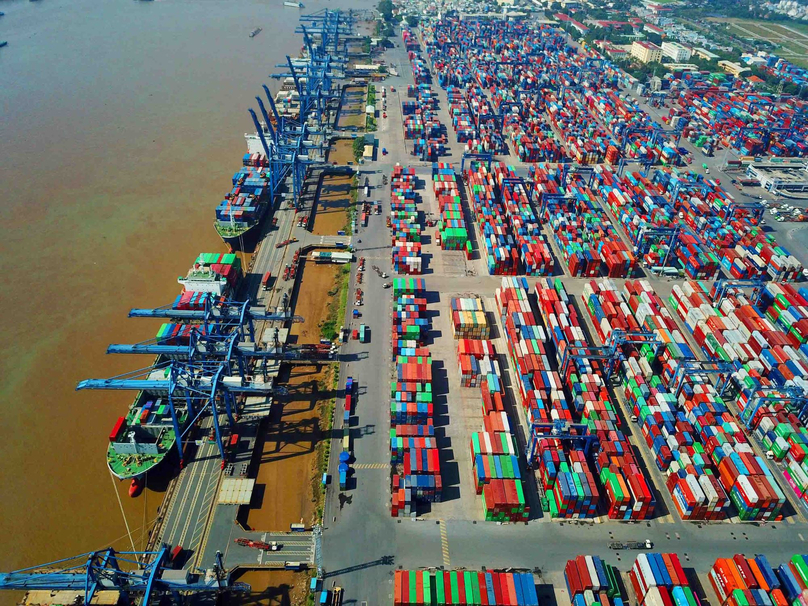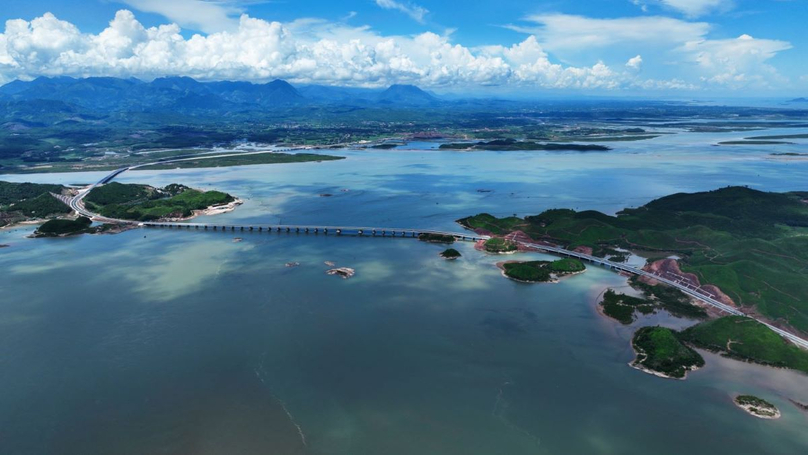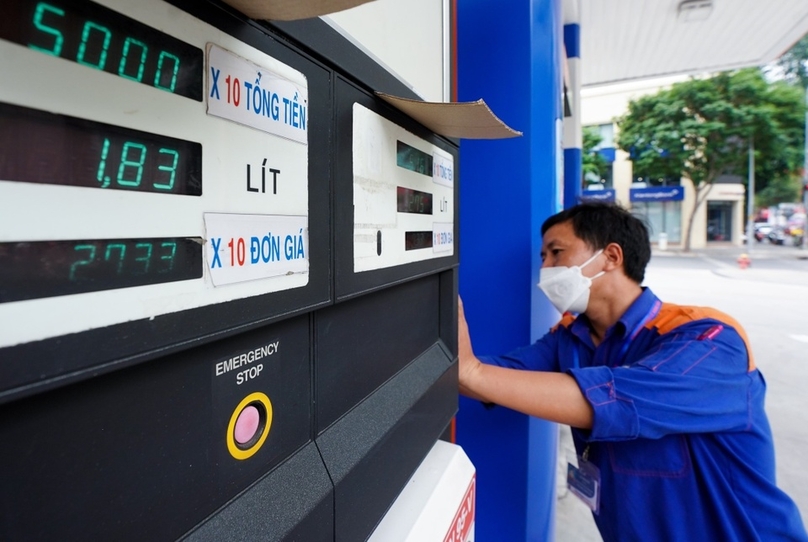
Vietnam's top 10 economic highlights in 2022
2022 has been a year of positive economic recovery in Vietnam, with many new records achieved, though coupled with unprecedented challenges. Here are 10 outstanding economic events of the year as voted by The Investor.

Cat Lai Port, the country's largest port complex. Photo courtesy of the port.
GDP growth highest in 15 years
Vietnam's economy expanded 8.02% in 2022, a record high since 2007 which exceeded the target of 6.5% set by the National Assembly. This is also the highest growth rate in Southeast Asia.
However, the high growth rate in 2022 is partly derived from the low growth base in the two pandemic years 2020-2021, at 2.91% and 2.58% respectively.
Inflation contained despite adverse external impacts
Despite the impact of the inflation "storm" from the U.S. economy and many other economies, Vietnam's inflation was reined in at 3.15% compared with 2021's average, lower than the set target of 4%.
This is a very significant result, given that the 2022 inflation was estimated at about 5.7% in developed countries and 8.7% in developing and emerging countries.
Record budget revenue, unprecedented support packages
State budget revenue as of December 15, 2022 reached nearly VND1,785 trillion ($75.54 billion), an all-time high, equaling 126.4% of the whole year estimate and up 13.8% year-on-year.
Many sources of revenue had exceeded the full year estimate by November, like import and export revenue, crude oil, and domestic revenue groups including state-owned, domestic private and foreign-invested business sectors, and money collection from land rentals.
Notably, 2022 witnessed unprecedented economic recovery support packages from fiscal policy. As of December 15, 2022, the total amount of tax, fees, charges and land rent exempted, reduced or seeing payment timelines extended is about VND193.4 trillion ($8.18 billion). Of this, the amount of exemption or reduction is about VND87.5 trillion ($3.7 billion).
Im-export turnover hit record high, large trade surplus
Vietnam's total import-export turnover in 2022 reached about $732.5 billion, a 9.5% year-on-year increase. Exports increased 10.6% to about $371.85 billion, exceeding the National Assembly and government's target by 8%. Notably, the export of agricultural, forestry and fishery products rose sharply to $53.22 billion, up 9.3% - the highest level ever.
The country has 39 products with export turnover of over $1 billion, of which eight items have export turnover of over $10 billion.
Vietnam continued to record a trade surplus for the seventh consecutive year with a surplus of $11.2 billion.

Samsung Electronics' largest Southeast Asia R&D center was inaugurated in Hanoi on December 23, 2022. Photo courtesy of the company.
Disbursed FDI capital an all-time high, with high-tech investment a prominent feature
Keeping pace with the economic recovery, foreign direct investment disbursement in 2022 reached nearly $22.4 billion, up 13.5% over the same period last year.
In 2022, a large-scale and modern R&D center invested by Samsung Vietnam made its debut in Hanoi. This is the group's largest R&D center in Southeast Asia, and is expected to become Samsung's number one global center, contributing to making Vietnam a technology hub for research and production.
Speeding up key transport infrastructure projects
The year marks a strong transformation of the transport sector, with a series of key projects kicked off, accelerated and inaugurated. Besides putting into operation and opening to traffic a number of expressway projects like Trung Luong-My Thuan, Van Don-Mong Cai, Cao Bo-Mai Son, and La Son-Hoa Lien, a series of key transport infrastructure projects have seen construction commence.
They include the 12 North-South Expressway eastern section phase 2 component projects at a total length of 729 kilometers; expressway projects in the Central Highlands and Mekong Delta; passenger terminals, runways, taxiways, and aprons for phase 1 of the Long Thanh International Airport project; and the T3 Tan Son Nhat passenger terminal project.
The strong transformation of transport infrastructure will create a new driving force for the country's economic growth in the coming years.

The Van Don-Mong Cai Expressway opened to traffic September 1, 2022. Photo courtesy of the investor Sun Group.
Stock market wobbles, recording the world's biggest drop
The stock market experienced a turbulent year when the VN-Index recorded a series of strong declines, backing to 873.8 points on November 16.
Although many stocks gradually recovered toward the end of the year, they still lost 60-70% of the market price compared to their peak. The sharp decline since the middle of the year turned Vietnam's stock market into the world's strongest falling market.
The corporate bond market was almost "frozen", with many businesses falling into difficulties, losing liquidity, and "thirsty for capital".
Real estate market decline
Since April 2022, the real estate market has fallen into a state of reduced supply, declined demand, and plummeting liquidity. Faced with pressure on cash flow, interest rates and liquidity, many investors massively reduced prices, though transactions remained stagnant.
The real estate market declined, resulting in a series of real estate stocks lying on the floor for a long time, selling off intensely, including stocks in the VN30 group, which tracks the 30 biggest capped stocks.
Many large economic cases brought to trial
2022 is associated with many economic corruption cases. Many Vietnamese entrepreneurs were placed under investigation like Trinh Van Quyet, chairman FLC Group; Do Anh Dung, chairman of Tan Hoang Minh Group; Truong My Lan, chairwoman of Van Thinh Phat Group; and Nguyen Thi Thanh Nhan, chairwoman of AIC Group.
In the state sector, there are a series of shocking cases like that of bribery at the consular department under the Ministry of Foreign Affairs and the case at Viet A Technology Joint Stock Company related to Covid-19 test kits.
The massive economic corruption cases in 2022 have directly impacted many fields like finance, securities, and real estate. However, public opinion holds that these are necessary measures to make the market and business environment transparent and healthy.

The Vietnamese market experienced three fuel shortages in 2022. Photo courtesy of Zing magazine.
Uncertainty in petrol price management
In 2022, Vietnam experienced up to three fuel shortages in the market. The peak was in August, when a series of gasoline stations in Ho Chi Minh City and neighboring southern provinces simultaneously shut down. Gasoline scarcity then spread to the north, with many gasoline stations stopping or "selling in drips".
Petrol prices for a while peaked, surging up to nearly VND33,000 per liter on June 21, creating great pressure on transportation and logistics activities, increasing domestic production and business costs.
Although the gasoline market gradually stabilized toward the end of the year, the disruption of supply over the past time shows the instability in gasoline price management, providing a great lesson for state management agencies.
